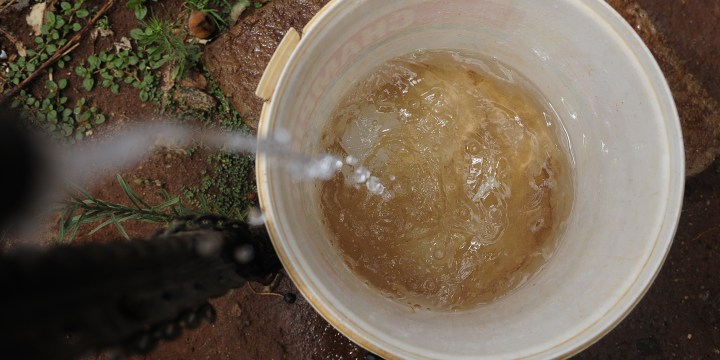Op-Ed
A ‘brown revolution’ can secure our water future

More radical and disruptive interventions are required. Behaviour change in water usage and new non-sewered sanitation (or off grid sanitation) are required to ‘future proof our water security’.
As South Africa and the government, we live through a water crisis daily and one which we have managed to date. Changing climate and new extreme weather events, together with growing population and poor water use behaviour, puts greater pressure on our water management and security.
There are many new solutions such as harvesting, reuse, reducing leaks etc to alleviate this challenge. However, more radical and disruptive interventions are required – these being behaviour change in water usage and new non-sewered sanitation (or off grid sanitation). These kinds of interventions are required to “future proof our water security”.
With current conventional sanitation and sewerage systems associated with the flush, we are using anywhere between 30 to 60% of all household water consumption. This practice of moving large amounts of human waste using fresh treated water puts pressure on an already constrained water resource environment.
Not only does it become unsustainable, but it contributes to water quality challenges through the introduction of new pollutants. At present many parts of the country are experiencing heatwave conditions and there are some areas where water supply is constrained. In these circumstances, current sanitation approaches become extremely vulnerable.
Herein lies the greatest opportunity of the “brown revolution”. The ability to disrupt the flush practices through new non-sewered sanitation solutions offers the opportunity to release and contribute nearly 30 to 60% water to the resource, and thereby improve both water and sanitation security. The additional benefits relate to closing a pollution pathway which so seriously affects the environment, extension of capacity of existing infrastructure and possibly a reduction in the need for new and larger infrastructure.
Further, this new non-sewered sanitation will have the elements of a circular economy which will see human waste as a resource, which allows a whole ecosystem of beneficiation to be derived from processing, by-products and servicing models which support self-sustaining businesses.
It will have a catalytic effect of stimulating and developing a series and variety of logistics and supply chain models which brings greater convenience to the user/customer and the much-required capacity which is a weakness in the public model. There are already many of these initiatives in application where human waste is being turned into valuable products such as biochar, oil, protein and fertilisers. This resource approach opens up new opportunities for a sanitation economy.
Leading this “brown revolution” in South Africa is the Water Research Commission under the banner of The Sanitation Transformation Initiative – known under the acronym SaniTI – an approach conceptualised by the Water Research Commission which aims to disrupt the current sanitation paradigm by presenting a new pathway and presents a national strategic direction for the South African sanitation industry for various partners and stakeholders to break away from the current engineering and economic paradigm, to a more water secure paradigm.
As the build-up and contribution to the World Toilet Day on 19 November, the Water Research Commission and its partners the Department of Science and Innovation, Department of Human Settlements, Department of Water and Sanitation, SABS, and the Department of Trade and Industry, with the support of the Bill and Melinda Gates Foundation, is launching the South African Sanitation Demonstration Programme (SASTEP) on 14 November 2019. SASTEP will support and accelerate the application and uptake of the latest cutting-edge toilets through evidence-based policy adjustments, demonstration, testing and science-based improvements towards localisation and industrialisation. This includes technologies supported by the Bill and Melinda Gates Foundation’s “Reinvent the Toilet” programme. The revolutionary toilet systems will offer water-saving or water-recycling features, be aspirational in design, and more important, offer dignity and convenience.
This is our contribution to South Africa and the developing world towards closing the sanitation backlogs by creating the platform for leapfrogging these solutions in growing urban cities and rural areas of the developing world. This bold and ambitious attempt will transform sanitation and will be the new gold standard enabling universal access to sanitation.
It is upon all of us to agitate for this “brown revolution”; however, it is important to prepare our people for such a revolution, lest we become a group of sanitation rebels. We need a common message with many voices. The sanitation revolution has taken us thus, now is the time for the sanitation “brown revolution” to take us to the future. DM
Jay Bhagwan is an Executive Manager at the Water Research Commission.



















 Become an Insider
Become an Insider